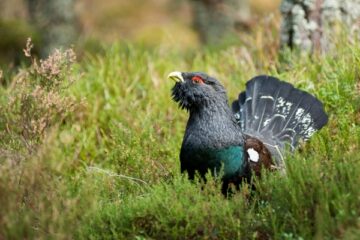BASC has agreed to commit financial assistance and expert advice to Humber-based wildfowling clubs suffering from Natural England’s failure to provide a satisfactory consenting process.
Legal opinion has been sought to ensure clubs that have been refused or issued with heavily restrictive shooting consents have all the options and resources at their disposal to respond to Natural England.
This work has been supported by BASC’s Fighting Fund, which was launched earlier this year to promote and protect shooting.
James Green, BASC’s head of wildfowling, said: “BASC is committing financial and staffing resources to areas that threaten the future of shooting.
“The consenting process being undertaken by Natural England will have no conservation or environmental benefit. It simply demonstrates the licensing agency’s priority to gold plate regulation rather than effectively manage the habitat for the benefit of the wildlife that relies on it.
“Wildfowlers have been the custodians of our protected sites for hundreds of years; Natural England continue to trample on history and conservation in favour of a precautionary approach. We must challenge it!
“The Humber is iconic for wildfowling and a key part of the history of BASC, which came out of WAGBI. It’s important we help shooting face down this threat.”
We will continue to support the Humber clubs.
With many people worried about the future and the direction of travel being undertaken by Natural England (NE), we feel it is important to keep you fully informed. If your club has a valid consent or your wildfowling is outside of the protected site network, then you are unaffected by the current issues, you can carry on this season as you always have. This is the situation for the majority of our wildfowling clubs.
However, the threat to wildfowling should not be underestimated. We all need to play our part and there are several ways you can help in the short term:
Ensure full compliance with club rules. Conditions imposed through the consenting process, or agreements made through landowner leases will be enacted through your club rules; make sure you have read them and ensure they are honored by you and all others. To breach a club rule could also be a breach of the Wildlife and Countryside Act – and as such be a criminal offence.
Bag returns. Record your bag returns following every trip and make sure they are submitted on time at the end of the season. Use the BASC online bag recording system to save time and effort for your club committee. The online returns system is accessible either through the website or the BASC App using your membership number and members area password. If you have not used it before, it is easy to set up and simple to use. If you need any assistance, the BASC wildfowling department can help.
Wardening.Fulfil your obligations as estuary wardens whenever you are on the foreshore; record any disturbance, pollution events, possible poaching, and bad practice immediately – and make sure those responsible for reporting such activities within your club are made aware so it can be acted on where appropriate. We are the custodians of these fantastic habitats and we need to make sure we do our bit to help them flourish.
Litter picks. As well as large scale club-organised litter picks, pick up any plastic debris from the tideline on each of your visits. Ensure it gets recycled and, most importantly, record it! It might only be 6 plastic bottles but if all wildfowlers do the same on every visit it will soon add up and it will make a difference. These factors and the ability to reference exact figures could have a significant impact on the consenting process in the future.
Participate in Wetland Bird Survey counts (WeBS). WeBS count data is the best available evidence used by the regulator when issuing consents. We highly recommend every club has a proactive relationship with their local WeBS count coordinator. There are many gaps in the data, and we need to make sure these are accounted for. Giving up one Sunday a month during the season isn’t much to ask. It can also do wonders for your quarry identification skill and understanding of the birds and habitat, ultimately adding to your enjoyment.
Conservation work and pest control. If your club has access to any inland potential breeding sites, make sure you can undertake pest and predator control come the end of the season. If these are within protected sites, make sure individual licences and consents are in place now so you do not miss the opportunity. Ensure duck nest tubes are maintained, replaced or new ones located – they can increase brood success by up to 90 per cent.



